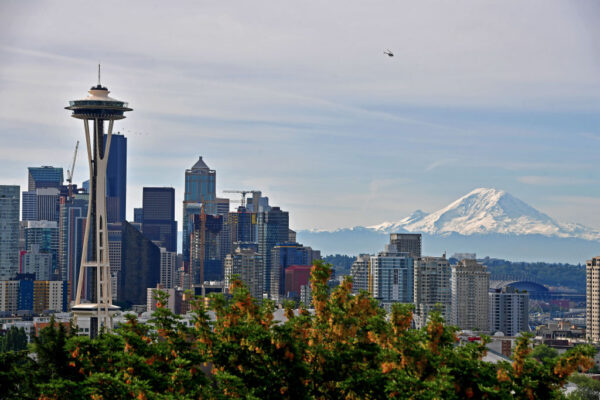
A plot of land owned by the city of Seattle will soon turn into a new campus for the Pacific Northwest metropolis’ rapidly growing life sciences sector.
Life sciences developer Alexandria Real Estate Equities has an agreement with the city government to buy a 2.86-acre parcel known as the Mercer Mega Block, in the South Lake Union neighborhood that is a hub for numerous large and small companies, including Amazon’s headquarters. The deal still requires approval by the city council, but it will include a mixed-use life sciences campus, the company said. Mayor Jenny Durkan’s office said the development would also include low- and middle-income housing.
The company will pay $143.5 million to the city, including $5 million to help address its homelessness crisis. But the proposed deal illustrates the city’s significant growth as a life sciences hub, in addition to its larger reputation as an information technology center, with the city and surrounding suburbs home to Amazon and Microsoft.
Alexandria has had a presence in Seattle for more than 20 years and currently operates or is constructing numerous developments in South Lake Union, one of the city’s fastest-growing neighborhoods. Tenants include Bristol-Myers Squibb, Gilead Sciences, Celgene and the University of Washington. Celgene acquired Seattle-based CAR-T developer Juno Therapeutics for $9 billion in January 2018 and was itself acquired by BMS for $74 billion in January of this year.
“Our goal is to create a new model of urban development that supports our mission to advance human health while also addressing some of our community’s most pressing challenges,” said John Cox, senior vice president at Alexandria and regional market director for Seattle, in an emailed statement.
While most of the country’s life sciences industry is centered around Boston and San Francisco – along with growing hubs like San Diego and New York – Seattle has seen significant growth in life sciences as well, driven by research at institutions like the University of Washington and the Fred Hutchinson Cancer Research Center, along with investment by firms like Alexandria. Also on Wednesday, the company said it signed a 12-year lease on a large development with Adaptive Biotechnologies, a Seattle-based diagnostics company.
Photo: David Miralle, Getty Images












